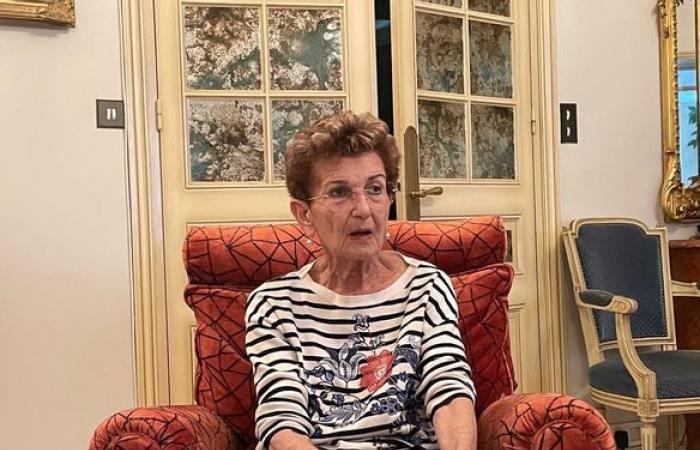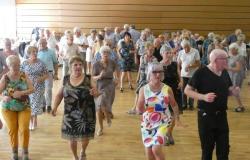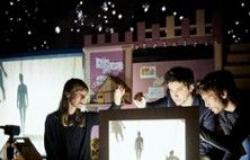Céline Koplewicz (her maiden name) escaped the Vel’d’Hiv Roundup and Gestapo arrests several times between July 1942 and the end of the Second World War. She delivers her precious testimony in a work written by Dominique Sénore.
She is a mother, grandmother and great-grandmother, 93 years old, full of life, vivacity and a desire to pass on who welcomed us into her home to tell us her story, both tragic and fortunate, made of traumatic exchanges and encounters of unparalleled humanity. This is the story and journey of a young girl who escaped the Vel’d’Hiv’ Raid in Paris on July 16, 1942 before narrowly avoiding falling into the cracks of the police. German army on several occasions.
A crisis which made it possible to avoid the Raid
In the mind of Céline Koplewicz, July 16, 1942, feels like it was yesterday. At that time, the little girl, only 8 years old, lived in 3 e district of Paris alongside his father and mother. As she explains: “Around 7 o’clock, there is a knock on the door. My dad goes to open it and comes back in a panic: “get up, pack two small suitcases, there’s a raid.” Céline does not understand what is happening and goes with her family to a rallying point where other people of the Jewish faith are already waiting. “Suddenly, my mother has an anxiety attack, and the policeman shouts: “This woman is going to die, she dies in her bed, she lives 50 meters from here”. The Germans had only one fear, that of the sick. My dad took us home before returning, alone, to the gathering place, probably to protect us, to save his family.” Céline Koplewicz had just escaped the Vel’d’Hiv’ Roundup. But that was not the only time that sad day in 1942.
A few hours later, instructed by her mother to bring her father a coat, Céline goes to a hangar where all the Jewish people in the neighborhood are gathered, waiting for buses to go to the Vélodrome d’Hiver. She explains: “Arriving at the venue, there is a platform with a gentleman who calls out to me in a very violent tone: “What do you want?”. I tell him I want to see my dad and give him the coat. The officer returns to me: “You give it to me, I’ll take it to him, but you leave straight away.” Afterward, Céline Koplewicz realizes that this authoritarian voice “which still resonates in her head” “saved her life” because, according to her, “if I went into the room, I never came out.”
Change identity to avoid arrest
After this day, a long journey of four years began through France and Switzerland to escape the German army. Passing through Bordeaux, Samadet and Marseille, Céline Koplewicz took over the management of Saint-Laurent-sur-Gorre in the fall of 1942 before finding her mother in Digne-les-Bains in Savoie, an area occupied by the Italian army, many more lenient with the Jews. Here again, Céline Koplewicz narrowly escapes the German army: “One morning, we hear shouting in German in the village. A friend’s mother comes knocking on the apartment door and says to my mother: “Mrs Koplewicz, leave, the Germans are here. Leave Céline to me, I will take care of her like my daughter, run away.”
Between August 1943 and 1944, Céline Koplewicz, renamed Céline Martin, lived with her host family, the Ruets. In Savoie, Céline goes to school and meets in her class a group of young Christian Polish immigrants who have learned, despite the change of identity, of the young girl’s Jewish faith. One winter morning, two German officers walked around the classroom, asked if there were any Jewish students, and looked at the roll call register. But his comrades did not say a word to the German officers. Another sign of luck. “Was it to save a student or for fear of the anger of the teacher who had demanded silence? » asks Céline Koplewicz again.
In April 1944, Céline Koplewicz found her surname and headed for Switzerland with the help of a smuggler. Always on her guard, the little girl becomes alarmed at the slightest words resembling the German language. The 12-year-old girl then joined a host family in German-speaking Switzerland.
“I will never speak German, this language of savages”, she said at 12 years old
When she arrives, the eldest daughter of the family speaks French but explains that this is not the case with her parents, and that she will have to learn Swiss-German. Céline Koplewicz admits to having an impulsive reaction: “I will never speak German, this language of savages and evil people”. Finally, a few months after her arrival, she speaks Schweizerdeutsch and is very attached to her family as well as to Fleury, one of the cows in her care.
In August 1946, the Red Cross organized the repatriation of refugee children in Switzerland to France. In Paris, Céline Koplewicz finds her brother, her sister and her mother in the apartment she had left four years previously. The whole family is reunited, except Céline’s father, deported in convoy number 10 to Auschwitz-Birkenau, where he died.
When she came of age and after a long trip to Argentina, Céline Koplewicz decided to leave her mother’s home, began to work and met Albert, her future husband, a doctor, whom she accompanied to carry out his military service. They then head towards Algeria, but quickly become disillusioned with the attitude of the French colonists there. In 1962, at the end of the Algerian war, Céline left the country with her two children but without her husband who was forced by the OAS to remain on Algerian territory. On the way to settle in the Paris region, Céline Chojnoswski makes a stop in Roanne where her husband’s sister is based. Which she will pick up in February 1963. Here, they are offered a large apartment with two entrances to be able to set up their respective doctor’s and beautician’s offices. In the end, they never left the Roanne city.






